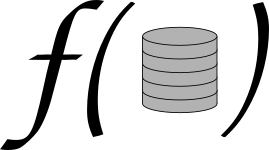PODS 2017: Accepted Papers
On behalf of the PODS 2017 Programme Committee, I am pleased to announce the full list of accepted papers (1st and 2nd cycle combined):
- Circuit Treewidth, Sentential Decision, and Query Compilation, Simone Bova and Stefan Szeider.
- A Worst-Case Optimal Multi-Round Algorithm for Parallel Computation of Conjunctive Queries, Bas Ketsman and Dan Suciu.
- Answering Conjunctive Queries under Updates, Christoph Berkholz, Jens Keppeler and Nicole Schweikardt.
- On Asymptotic Cost of Triangle Listing in Random Graphs, Di Xiao, Yi Cui, Daren Cline and Dmitri Loguinov.
- The Complexity of Ontology-Based Data Access with OWL2QL and Bounded Treewidth Queries, Meghyn Bienvenu, Stanislav Kikot, Roman Kontchakov, Vladimir Podolskii, Vladislav Ryzhikov and Michael Zakharyaschev.
- Efficient and Provable Multi-Query Optimization, Tarun Kathuria and S Sudarshan.
- Stable Model Semantics for Tuple-Generating Dependencies Revisited, Mario Alviano, Michael Morak and Andreas Pieris.
- Private Incremental Regression, Shiva Kasiviswanathan, Kobbi Nissim and Hongxia Jin.
- Benchmarking the chase, Michael Benedikt, George Konstantinidis, Giansalvatore Mecca, Boris Motik, Paolo Papotti, Donatello Santoro and Efthymia Tsamoura.
- A Relational Framework for Classifier Engineering, Benny Kimelfeld and Christopher Re.
- BPTree: an L2 heavy hitters algorithm using constant memory, Vladimir Braverman, Stephen Chestnut, Nikita Ivkin, Jelani Nelson, Zhengyu Wang and David Woodruff.
- How Fast can a Distributed Transaction Commit?, Rachid Guerraoui and Jingjing Wang.
- What do Shannon-type inequalities, submodular width, and disjunctive datalog have to do with one another?, Mahmoud Abo Khamis, Hung Ngo and Dan Suciu.
- J-Logic: Logical foundations for JSON querying, Jan Hidders, Jan Paredaens and Jan Van den Bussche.
- Counting and Enumerating (Preferred) Database Repairs, Ester Livshits and Benny Kimelfeld.
- Dichotomies in Ontology-Mediated Querying with the Guarded Fragment, André Hernich, Carsten Lutz, Fabio Papacchini and Frank Wolter.
- Efficiently Enumerating Minimal Triangulations, Nofar Carmeli, Batya Kenig and Benny Kimelfeld.
- Output-optimal Parallel Algorithms for Similarity Joins, Xiao Hu, Yufei Tao and Ke Yi.
- Querying Probabilistic Preferences in Databases, Batya Kenig, Benny Kimelfeld, Haoyue Ping and Julia Stoyanovich.
- Reverse Engineering SPJ-Queries from Examples, Yaacov Y. Weiss and Sara Cohen.
- Schema Mappings for Data Graphs, Nadime Francis and Leonid Libkin.
- Dependencies for Graphs, Wenfei Fan and Ping Lu.
- 2-3 Cuckoo Filters for Faster Triangle Listing and Set Intersection, David Eppstein, Michael Goodrich, Michael Mitzenmacher and Manuel Torres.
- Tight Space-Approximation Tradeoff for the Multi-Pass Streaming Set Cover Problem, Sepehr Assadi.
- Write-Optimized Skip Lists, Michael Bender, Martin Farach-Colton, Rob Johnson, Simon Mauras, Tyler Mayer, Cynthia Phillips and Helen Xu.
- Streaming Algorithms for Measuring H-Impact, Priya Govindan, Morteza Monemizadeh and S Muthukrishnan.
- Efficient Matrix Sketching over Distributed Data, Zengfeng Huang, Xuemin Lin, Wenjie Zhang and Ying Zhang.
- JSON: data model, query languages and schema specification, Pierre Bourhis, Juan L. Reutter, Fernando Suarez and Domagoj Vrgoc.
- Combined Tractability of Probabilistic Evaluation for Conjunctive Queries on Binary Signatures, Antoine Amarilli, Mikael Monet and Pierre Senellart.
As you all probably know by now, the SIGMOD/PODS 2017 conference will take place in Chicago, in the week of May 14, 2017. See http://sigmod2017.org for more information.
I provide an update on invited speakers in the separate blog post. Hope to see all of you in Chicago!
Floris Geerts, PC Chair PODS 2017
- Read more about PODS 2017: Accepted Papers
- Log in or register to post comments
